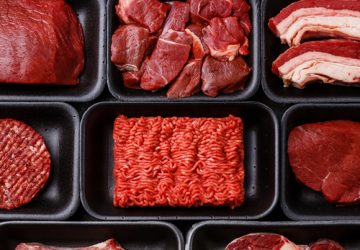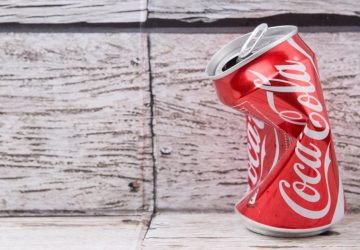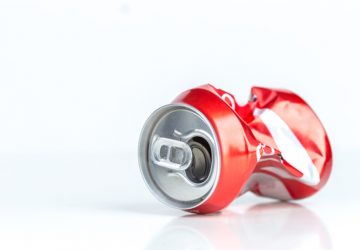The recent National Nutrition Summit in Washington, D.C., was heavily hyped by top government officials as a vehicle for tapping the collective expertise of the country’s leading nutritionists. Their mission? The so-called obesity epidemic. Instead, the Summit served as a springboard for the nation’s nannies to renew their call to tax snacks, sodas and high-calorie food. And if media coverage is any gauge, their taxing new demand has taken off.
Twinkie-tax proponent Kelly Brownell has long argued that we should “subsidize the cost of healthy foods, so they cost less [and] increase the cost of bad foods so they cost more.” In 1998, US News & World Report labeled his tax one of “16 Silver Bullets – Smart Ideas to Fix the World.” But in order to actually pass such an tax, Brownell has recently toned down his rhetoric.
Brownell – Then:
According to US News, when Brownell first tried to generate media coverage for
a steep tax on high-calorie foods, he said:
food with a substantial government ‘sin’ tax.”
ice cream more expensive relative to low-fat yogurt in the hopes that more Americans would reach for the
yogurt.”
Brownell – Now:
Since teaming up with Michael Jacobson, executive director of the Center for Science in the
Public Interest (CSPI), the new fat-tax rhetoric has been toned down for easier public digestion:
health campaigns.”
This new approach is the tried-and-true method for passing new taxes: minimize the amount and earmark it to a social issue that is seen as needing immediate action. Over time it will only grow bigger and might never go away. Think we’re kidding? The “luxury” tax on telephones imposed in 1898 to fund the Spanish-American War was only repealed last June! (In 2001, the tax would have cost citizens $4.3 billion).
A Media Bonanza!
The upshot of Brownell and Jacobson’s modest adjustment to their intrusive fat-tax scheme has meant a windfall of positive (for them!) media exposure:
Newsweek – June 25, 2000: “Protecting our kids may ultimately require such [tax] initiatives.”
Roll Call – June 1, 2000: “Fat police testing fast-food restaurants and applying a cholesterol tax wouldn’t be impossible.”
Reuters News Service – June 3, 2000: “A tax on snacks and soft drinks could be just the ticket to keep Americans slim and trim.”
The Associated Press – June 10, 2000: “Like fat creeping up on a person’s thighs, a penny tax on junk food and soda would be little-noticed at first but have long-term impact.”
The Tampa Tribune – June 16, 2000: In calling for a “very, very steep tax” on snack foods to “subsidize the costs of healthy foods,” business writer Mike Stobbe proposes “a $3.00 Snickers bar.”
Foods Go Down Tobacco Road
Brownell and Jacobson’s politically tinged tax-hike strategy is lifted letter-and-verse from successful anti-tobacco activist lobbying efforts. Namely:
Bad Science Claims : In fact, an editorial in the New England Journal of Medicine in January 1998 argued that obesity is over-played as a public health problem.
“The data linking overweight and death…are limited, fragmented and often ambiguous.… [A]lthough some claim that every year 300,000 deaths in the United States are caused by obesity, that figure is by no means well established. Not only is it derived from weak or incomplete data, but it is also called into question by the methodologic difficulties of determining which of the many factors contribute to premature death.”
Inflated Social Costs Claims : CSPI claims obesity’s “social costs” amount to $71 billion. How did they fatten that number? With some sleight of hand. Shirley Watson, the USDA’s Undersecretary for Food, Nutrition and Consumer Services testified before Congress on March 1:
“We know that obesity, in children and adults, is a major factor in incidence of such conditions as diabetes, hypertension and stroke, osteoporosis, heart disease and some types of cancer. These diseases …cost society $71 billion.”
“Marketing to Children” Ploy – As Kelly Brownell once said, “To me there is no difference between Joe Camel and Ronald McDonald.” Among their goals: “restrict advertising of high-calorie, low-nutrient foods on television shows commonly watched by children.”
Accusing Deep-Pocketed Corporate “Villains” – CSPI’s newspaper ads claim food companies “kill as many Americans as tobacco.” This is part of their broad strategy to disconnect people from personal accountability. In 1995, the American Journal of Public Health wrote about intervention efforts to control obesity. Health officials must “[A]void ‘blaming the victim’ by recognizing the pervasive control that the environment has over behavior.”




